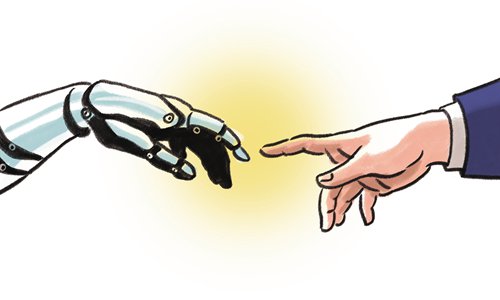
(Photo: Global Times)
He Jingsong, vice president of Qihoo 360
As a member of the cyber security workforce, I have found at least three problems that relate to the security aspect of AI. First is the absence of human control. AI's unmanned systems have become an easy target of hackers.
Besides, the sensors, training data and deep learning models that AI depends on are all risky. For example, as part of an experiment our researchers once interfered with Tesla's wireless sensors and the car directly hit the obstacle which was placed 50 centimeters away. Uber's fatal self-driving car crash also reminds us of paying more attention to AI security.
As AI brings benefits to our daily life, it also brings new threats to global security. For example, the AI attribute of analyzing and collecting online information makes cyber espionage more accurate and effective and helps reduce the cost of producing cyber weapons. We have also found out that AI has been used by the underground industry to disrupt social order.
To resolve AI's security problems, first we should establish public service platforms for AI security and make sure that the source of our data is credible. We should also protect AI's mass data to prevent leakage of users' information. The current AI system utilizes users' personal information - fingerprints, voiceprints, facial features and even tracks and locations - to train itself. AI is becoming wiser, leaving us no privacy. It should let users know when it's collecting information instead of doing it on the sly. Users should have the right to choose.
Besides, we should prevent abuse of AI in automation, network attack and defense, underground industry and other areas.
Vladislav Sherstyuk, director of Information Security Institute at Lomonosov Moscow State University
Our discussion on AI's influence is important, and it should give us some advance warning. Information technology has boosted the development of science and society, but it also brings about challenges. We need to know how to attack as well as to defend. However, we have no international rules or agreements as far as competition in technology is concerned. This will affect information security.
Internet has no national boundaries and no international orders or rules to follow. It is a big challenge. China, Russia and other countries in the Shanghai Cooperation Organization (SCO) tried to resolve the problem, making suggestions about the internet's code of conduct and forming expert groups to draft the rules. We are facing many challenges in legislation, and although there are many conferences and seminars on the issue, the problem remains.
I attended a meeting three weeks ago. When asked whether countries can reach a consensus on internet rules, most of the specialists from 51 countries agreed that there will be unanimity only when a global crisis occurs. We should contribute to making rules on information and communications technology before AI's problems become more serious. It is time to make a start.
Jiang Tao, senior vice president of iFLYTEK
With the development of AI, people and governments have developed concerns. Ordinary people are worried about losing their jobs, while governments are concerned it might lead to unemployment.
In fact, AI has many limits. It knows how to calculate, but it doesn't have any consideration or plans. It can't see the larger picture, and lacks self-consciousness. The concept of self-consciousness which is so intrinsic to humans can't be instilled in AI in the foreseeable future.
What has AI accomplished with so many limits? The third industrial revolution has contributed to links between human beings and information, people and products and connection among human beings. For example, now we can connect the best doctors with patients from all around the world at a small cost. However, it still can't resolve the basic problem, because it still needs human brains, such as knowledge of experts and experience. That is to say, as the third industrial revolution helps us with linkages, it also brings about a new problem.
Today, it is important to make people understand the relations between human beings and machines. Every individual and government should know how human beings and AI will coordinate in the future.
In my opinion, Europe's General Data Protection Regulation seems to be too conservative and will hinder the development of AI. I believe that human beings will cooperate with machines in the future. Human beings have emotions, wisdom and passion while machines are fast at calculations, statistics and analysis, and their synergy will promote human progress. In times of AI, it is not AI that is stronger than human beings, but those individuals who master AI technology.


